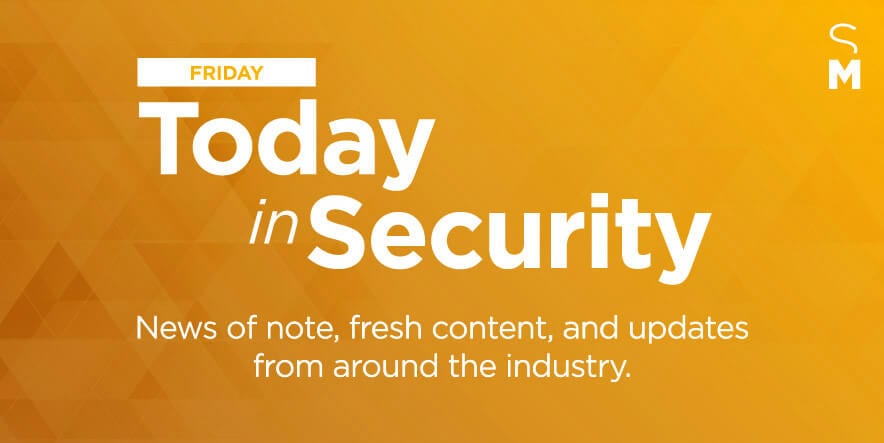New York Allows Businesses to Deny Entry to Unmasked Individuals
New York Governor Andrew Cuomo signed an executive order to allow private businesses to deny people entry if they are not wearing facial coverings or masks.
“I have been working to communicate this message about masks and how effective they are,” Cuomo said in a press conference. “They are deceptively effective. They are amazingly effective. And we’ve made them mandatory in public settings, public transportation, et cetera. But when we talk about reopening stores and places of business, we’re giving the store owners the right to say if you’re not wearing a mask, you can’t come in. That store owner has a right to protect themselves. That store owner has a right to protect the other patrons in that store. You don’t want to wear a mask, fine. But you don’t have a right to then go into that store if that store owner doesn’t want you to.”
Virginia Governor Ralph Northam issued a similar edict, making facial coverings mandatory for most people over the age of 10 when using transportation or in retail stores.
The guidance from U.S. state leaders for private businesses comes after an escalation in tension between personnel enforcing mask wearing requirements inside facilities and customers. In early May, a security officer was shot and killed in response to telling a customer her child had to wear a face mask—in accordance with a state executive order—to enter a Family Dollar store in Flint, Michigan.
“The argument began when the security guard, Calvin Munerlyn, 43, told Sharmel Lashe Teague, 45, that customers needed to wear face masks in the store, Genesee County Prosecutor David Leyton said at a news conference,” according to The Washington Post. “She yelled at him, spit on him, and drove off…. About 20 minutes later, her car retuned to the store, and her husband, Larry Edward Teague, 44, and son, Ramonyea Travon Bishop, 23, stepped out and confronted Munerlyn, according to investigators who spoke to witnesses in the store and reviewed surveillance video. Bishop pulled out a gun and shot Munerlyn, Leyton said.”
Recently, a video went viral on social media of a Costco employee asking a customer to put on a mask or leave the store; the customer refused and was required to leave the store. Costco adopted a policy earlier in May that requires shoppers to wear facial coverings while inside stores.
“I’ve got every (expletive) right to not wear a mask anywhere because this isn’t about the mask—this is about control,” said the customer in a video post. “I was one of the only people in that store not wearing a mask, which means you’re protected from me and I’m protected from you.”
As more localities reopen and businesses resume operations, the potential for conflicts over hygiene requirements to escalate is high. Masks have been especially triggering because they have become representative of a broader political divide in the United States, according to a column by Seth J. Gillihan, clinical assistant professor of psychology in the Psychiatry Department at the University of Pennsylvania, for Psychology Today.
“Those who lean left politically tend to see the virus as a more dire threat; those on the right are more likely to downplay its seriousness or compare it to less deadly strains like the flu, often following the lead of conservative politicians,” Gillihan wrote. “Accordingly, masks may be seen as a marker of political loyalty, triggering feelings of us-versus-them. A politically liberal person may assume that someone wearing a mask is ‘on their team,’ while those who don’t wear masks must be Fox News-watching Republicans. The anger they feel is not simply about the mask, but about believing the non-mask wearer is a certain type of person.
“On the flip side, the politically conservative might interpret calls for masks as politically-driven efforts to play up the seriousness of the coronavirus. Being asked to don a mask then becomes not just a request to protect the health of others, but to give up their worldview and political allegiance,” Gillihan continued.
The coronavirus is also taking a major toll on individuals’ mental health, which could exacerbate incidents like those previously mentioned. For instance, a recent U.S. Census Bureau poll found that a third of Americans now show signs of clinical anxiety or depression—a massive jump from figures reported before the coronavirus pandemic.
“Some groups have been hit harder than others,” according to The Washington Post. “Rates of anxiety and depression were far higher among younger adults, women, and the poor. The worse scores in young adults were especially notable, given that the virus has been more likely to kill the elderly or leave them critically ill.”
Security officers are often on the front line, enforcing facial covering requirements for entry or use of facilities. Their ability to de-escalate situations is critical, as well as understanding how fear and stress impact individuals and their decision-making capabilities.
“People who are emotionally wrought need to be connected with emotionally first,” said Helio Fred Garcia, a professor of crisis management at New York University and Columbia University, in previous Security Management coverage. “You can’t meet emotion with reasoned facts or data. You can only meet emotion with emotion and move people with you.”
